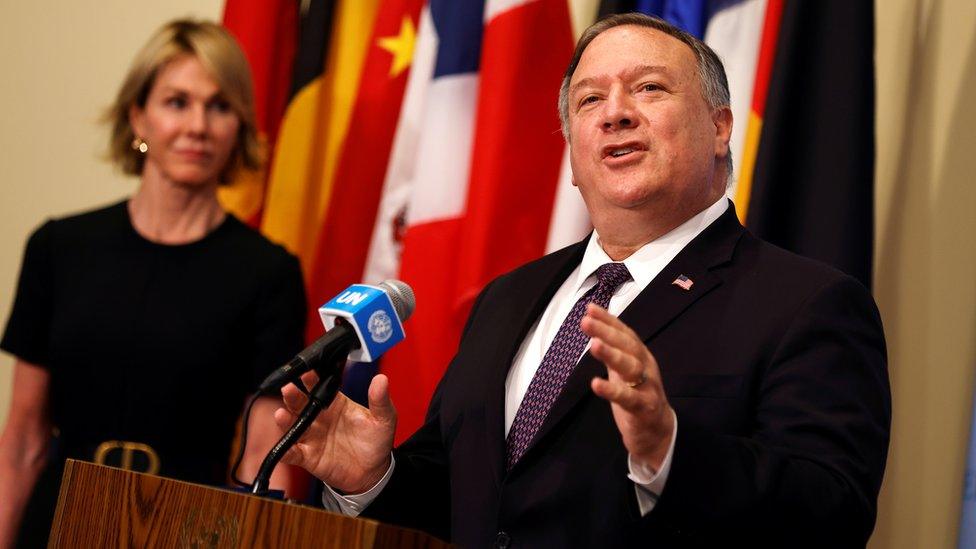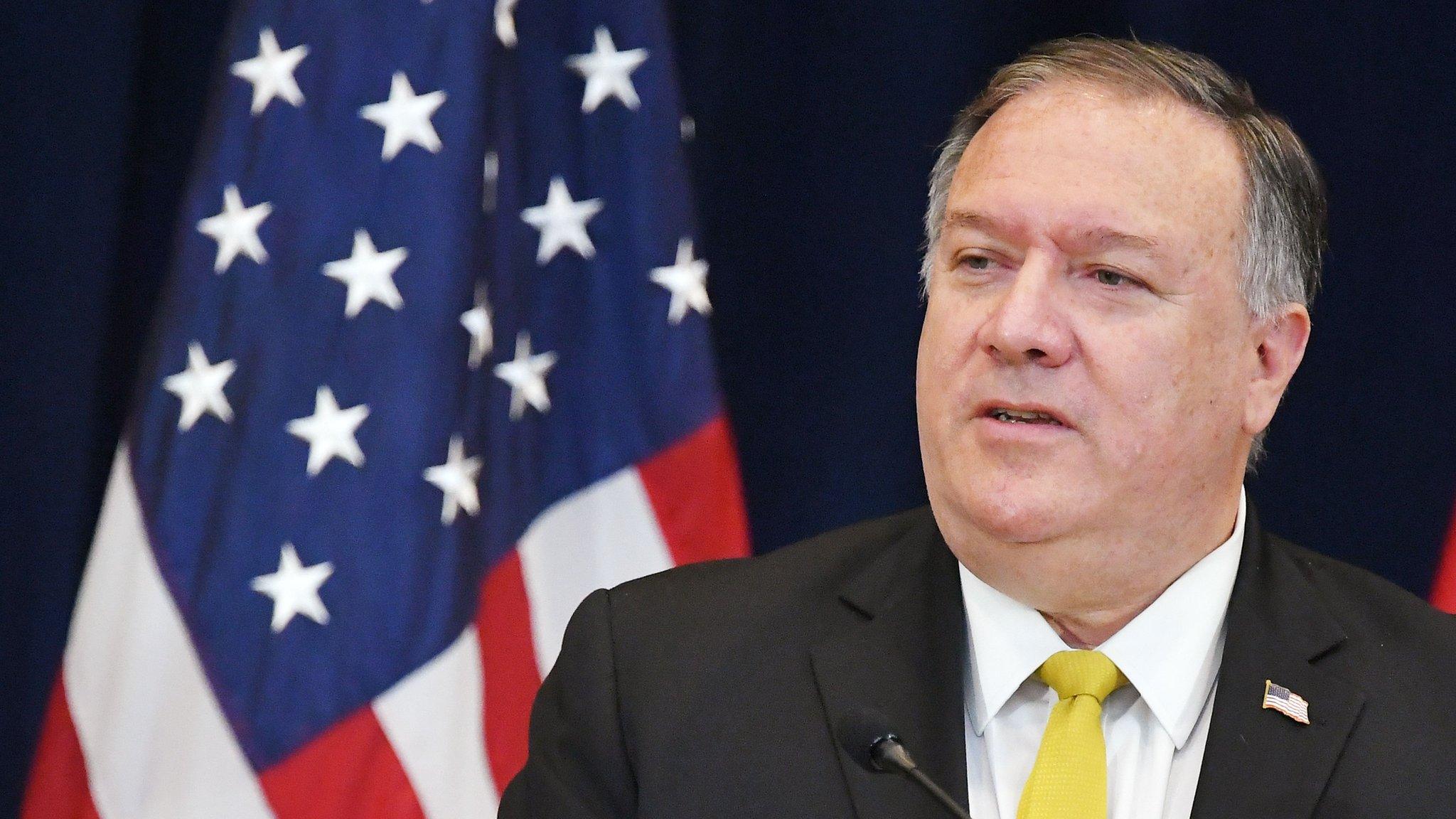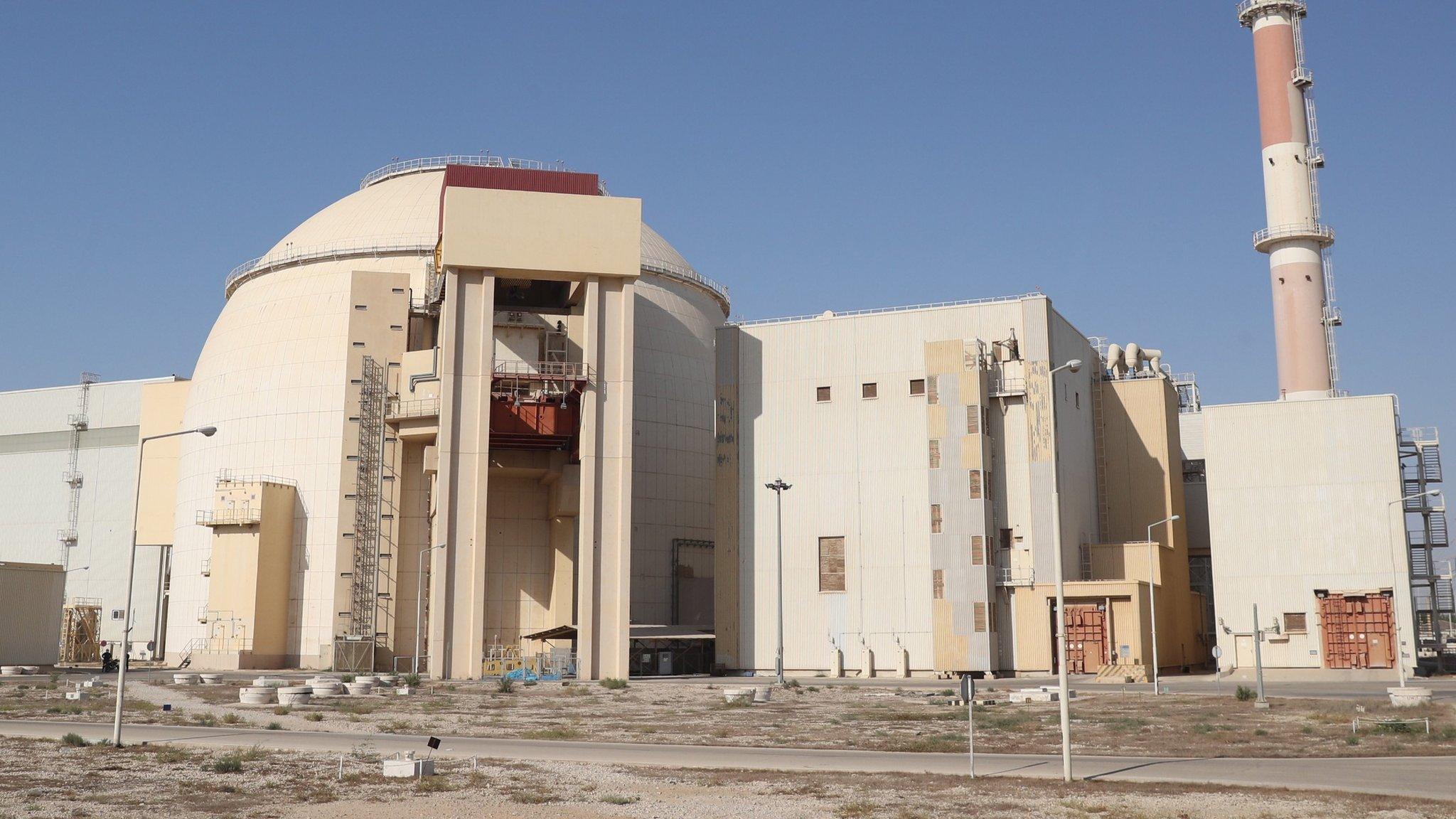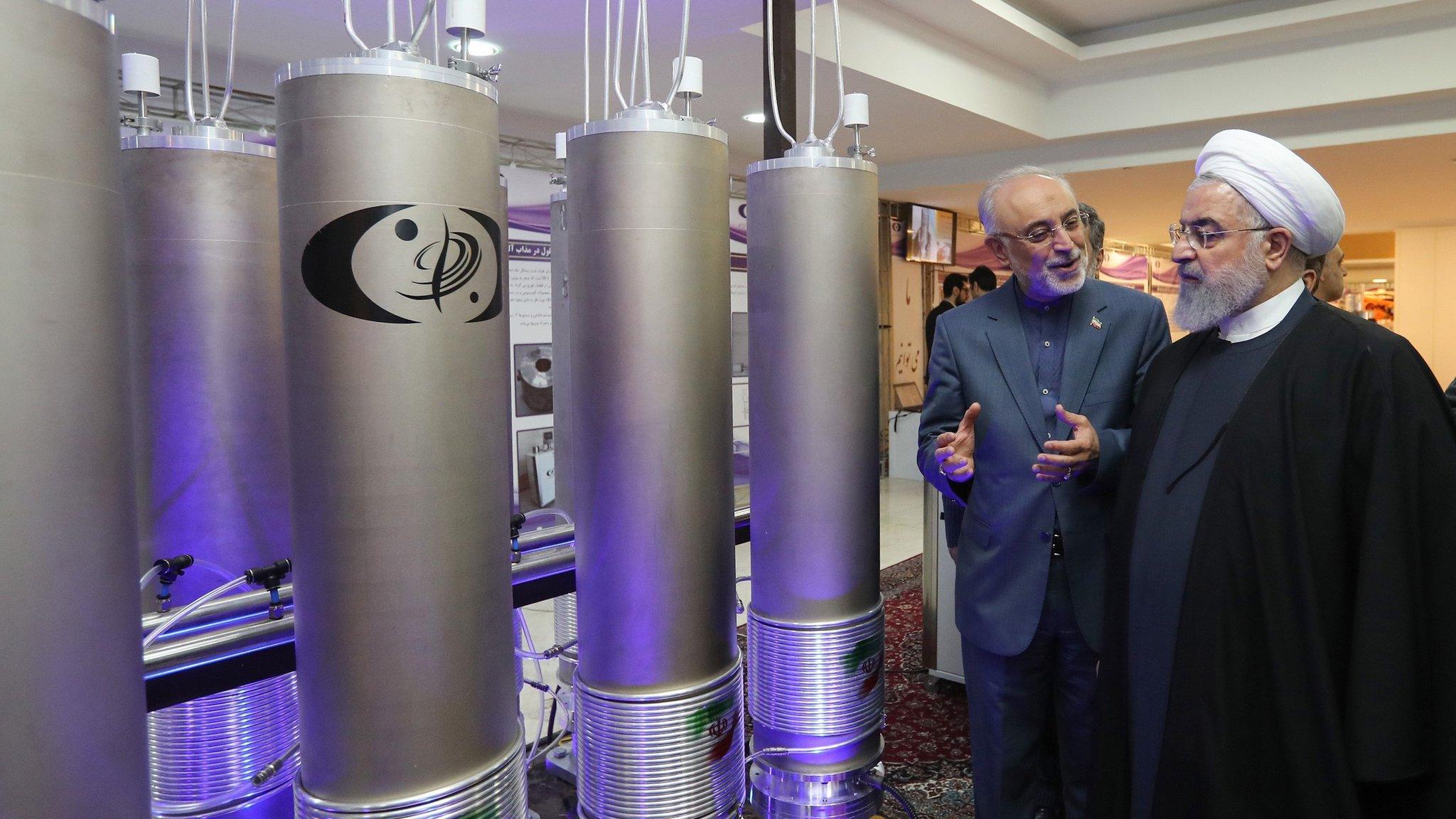Iran nuclear deal: UN rejects US bid to 'snapback' Iran sanctions
- Published

Kelly Craft and Mike Pompeo submitted a complaint to the UN security council on Thursday
The UN Security Council has blocked a controversial bid by the US to trigger the "snapback" of all sanctions on Iran lifted under a 2015 nuclear deal.
Indonesia's permanent representative, who holds the rotating presidency, said many of the 15 member states contested the move because the US withdrew from the accord two years ago.
The US envoy accused them of "standing in the company of terrorists".
Iran's foreign minister said "lawless bullying" had left the US isolated.
The Trump administration attempted to initiate the snapback process last week, after the security council rejected a draft US resolution that would have extended indefinitely an arms embargo on Iran due to expire in mid-October.
Under the nuclear deal, the P5+1 group of world powers - China, France, Russia, the UK, the US and Germany - gave Iran sanctions relief in return for limits on its sensitive activities to show it was not developing nuclear weapons.
Inside Iran: Iranians on Trump and the nuclear deal
The accord has been close to collapse since President Donald Trump abandoned it and reinstated US economic sanctions in 2018 in an attempt to force Iran to negotiate a replacement that would place indefinite curbs on its nuclear programme and also halt its development of ballistic missiles.
Iran has so far refused and has retaliated against the US sanctions by rolling back a number of key commitments, including those on the production of enriched uranium, which can be used to make reactor fuel but also nuclear warheads.
Last Thursday, US Secretary of State Mike Pompeo formally submitted a complaint accusing Iran of "significant non-compliance" with the nuclear deal and giving other security council members 30 days to adopt a resolution to stop the snapback.
He stressed that under security council resolution 2231, which endorsed the accord, the US had a legal right to do so because it was still named as a participant.

Iran insists its nuclear programme is entirely peaceful
But the three European powers, China, Russia and Iran rejected the assertion.
At a virtual meeting on Tuesday, Indonesian permanent representative Dian Triansyah Djani announced that the security council was "not in a position to take further action" in response to the US request.
"It is clear for me that there is one member which has a particular position on the issues, while there are significant numbers of members who have contesting views," he said.
Russia's envoy, Vassily Nebenzia, said he hoped the Trump administration would now drop its request, which he said was "not only illegal, but simply will not lead to achieving the result that was envisaged by the United States".
Allow X content?
This article contains content provided by X. We ask for your permission before anything is loaded, as they may be using cookies and other technologies. You may want to read X’s cookie policy, external and privacy policy, external before accepting. To view this content choose ‘accept and continue’.

But the US mission to the UN insisted the fact that some council members had expressed disagreement with its position did "not have any legal effect".
US representative Kelly Craft reminded the council that its request came only after "the majority of this body surrendered to unthinkable inaction" and declined to extend the arms embargo on Iran.
"Let me just make it really, really clear: the Trump administration has no fear in standing in limited company on this matter," she added. "I only regret that other members of this council have lost their way and now find themselves standing in the company of terrorists."
Iranian Foreign Minister Mohammad Javad Zarif later tweeted: "@SecPompeo's lawless bullying leaves US isolated again... Time for @realDonaldTrump to stop listening to novice bullies."
- Published21 August 2020

- Published16 November 2021

- Published30 April 2021
